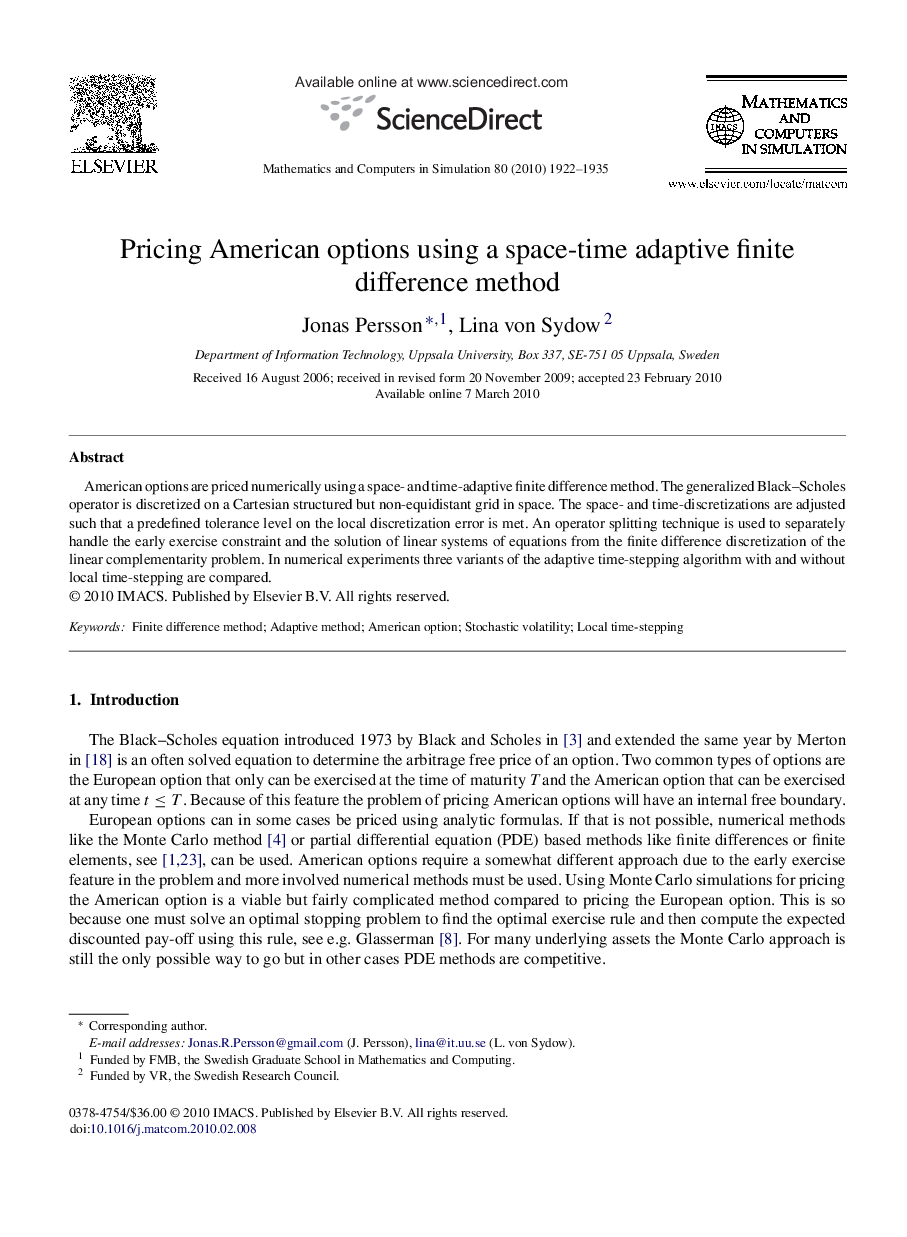| Article ID | Journal | Published Year | Pages | File Type |
|---|---|---|---|---|
| 1140945 | Mathematics and Computers in Simulation | 2010 | 14 Pages |
Abstract
American options are priced numerically using a space- and time-adaptive finite difference method. The generalized Black–Scholes operator is discretized on a Cartesian structured but non-equidistant grid in space. The space- and time-discretizations are adjusted such that a predefined tolerance level on the local discretization error is met. An operator splitting technique is used to separately handle the early exercise constraint and the solution of linear systems of equations from the finite difference discretization of the linear complementarity problem. In numerical experiments three variants of the adaptive time-stepping algorithm with and without local time-stepping are compared.
Keywords
Related Topics
Physical Sciences and Engineering
Engineering
Control and Systems Engineering
Authors
Jonas Persson, Lina von Sydow,
